US offers $10m reward for information on Iranian hackers
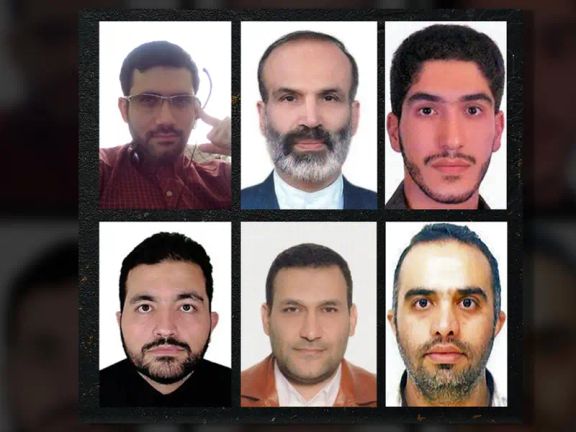
The US has offered a $10m reward for information on six identified Iranian government hackers responsible for a series of cyberattacks on US water utilities last fall.

The US has offered a $10m reward for information on six identified Iranian government hackers responsible for a series of cyberattacks on US water utilities last fall.
The State Department statement said it is looking for "information leading to the identification or location" of the suspects.
The six Iranian officials named in the advisory are linked to Iran’s Islamic Revolutionary Guard Corps (IRGC) and its Cyber-Electronic Command (IRGC-CEC).
They are accused of compromising industrial control systems, specifically targeting the Vision series of programmable logic controllers (PLCs) manufactured by Israel-based Unitronics. These PLCs are widely used in various industries, including water and wastewater, energy, food and beverage, manufacturing, and healthcare.
The men identified include Hamid Reza Lashgarian. head of the IRGC’s cyber-electronic command and a commander in the IRGC-Qods Force.
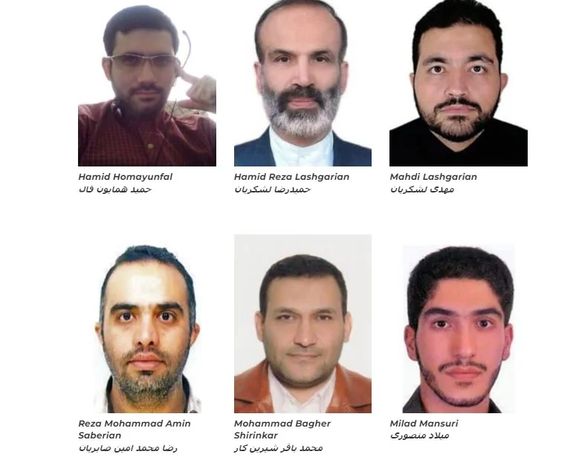
The officials have been linked to the hacking group CyberAv3ngers. In October, CyberAv3ngers publicly took credit for cyberattacks against Israeli PLCs, and starting in November, they compromised the default credentials in these PLCs across the US, leaving messages on the devices’ digital screens with anti-Israel statements. These compromises often rendered the devices inoperative.
On February 2, the US imposed sanctions on the same six individuals for their “deliberate targeting of critical infrastructure.” A Treasury Department official condemned the attacks as “unconscionable and dangerous,” emphasizing that the US “will not tolerate such actions and will use the full range of our tools and authorities to hold the perpetrators to account.”
The IRGC-CEC was previously sanctioned by the US in 2018 and designated a terror group in 2019.
The individuals were named as Specially Designated Nationals under Executive Order (E.O.) 13224, which targets leaders and officials of terrorist organizations.
The sanctions block all property and interests in property of the designated officials within the US or controlled by US citizens and generally prohibit US citizens from engaging in transactions with them.
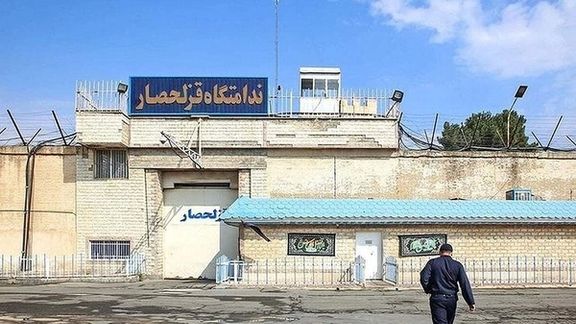
Irani carried out a mass execution of at least 29 people on Wednesday morning in two prisons located near the capital, Tehran, as the world was busy following news of a possible attack on Israel.
Twenty-six prisoners were executed in Ghezelhesar Prison and three were executed in Karaj Central Prison, according to Norway-based Iran Human Rights Organization (HRNGO).
"The Islamic Republic, by exploiting global attention on its tension with Israel, is currently engaged in mass killing prisoners and intensifying the suppression in Iran,” said HRNGO director, Mahmood Amiry-Moghaddam in a statement on Wednesday.
Of the 29 men executed, 17 were executed for murder charges, seven were on death row for drug-related charges and three on rape charges.
HRNGO also reported that the rights group had received reports of an additional two women being executed on Wednesday but was unable to confirm the report so far.
HRNGO further noted that at least 87 people have been executed in Iran in one month since the presidential elections on July 6. This brings the total number of those executed in 2024 to 338 as of Wednesday.
According to Amnesty International, Iran carried out 853 executions in 2023, marking the highest number in eight years. Amnesty International noted that 64 percent of the executions in 2023 were for crimes that did not warrant the death penalty under international law, including drug-related offences, robbery, and espionage.
Since the alleged Israeli assassination of Hamas's political leader, Ismail Haniyeh, in Tehran last week, Iran has threatened to retaliate. Global powers have been intervening to calm tensions as fears rise of an escalation between the two archenemies.
In April, Iran launched its first-ever direct attack on Israel, launching a barrage of 350 missiles, rockets and drones, most of which were intercepted by Israel and a US-led coalition.
However, the threats from Tehran say this retaliatory attack would be far worse, while countries such as the US and Russia have been urging calm.
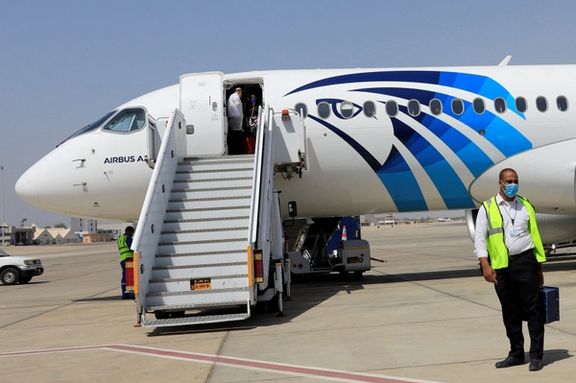
As the region braces for Iran’s retaliatory attack on Israel, experts specializing in Iran are not seeing a clear picture into the definite meaning behind Egypt instructing all its airlines to avoid Iranian airspace for a specific amount of time on a specific day.
The Egyptian NOTAM, a safety notice issued to pilots and aviation authorities, said Iran’s airspace must be avoided on Thursday from 0100 to 0400 GMT, according to Reuters.
Egypt’s Civil Aviation Ministry reportedly said the notice came after Iran warned all airlines flying over the Iranian territories about 'military exercises' on Wednesday and Thursday.
However, Iran has not issued a NOTAM for its entire airspace, and just warned pilots against flying below 12,000 feet, which is below cruising altitude of civilian airlines, in western Iran.
What prompted the Egyptian notice has not been revealed amid a looming war between Iran and Israel after the assassination of Hamas leader Ismail Haniyeh in Tehran last week. Israel has not officially claimed responsibility, but the Iranian government is blaming its adversary.
On X, the OPS group, a membership organization that shares information about international flight operations, wrote "such a NOTAM from Egypt is very unusual. It is possible that this is an indicator of an Iranian response to Israel, and in turn a potentially large set of air space disruptions - at the same time, there may be another reason."
Is this the window of attack?
Many are left wondering if this could be the window that Iran will use to retaliate against Israel?
Experts advise caution on reaching conclusions just yet. The answer, they said, is not a simple yes or no, but rather a myriad of reasons.
"No one has a clear sense of Iran's timing for a response," said Bessma Momani, a Professor of Political Science at the University of Waterloo in Canada.
Momani said it would be be highly unusual for Iran to share information of a potential strike on Israel with Egypt.
"Regional actors are trying to get prepared and to signal their preparedness but I doubt Egypt would be privy to any information on when or if Iran and its allies plan on responding to Israel with a military attack," she added.
"Cordial but not warm," is how Momani described Egypt-Iran relations. Momani is also a Senior fellow at the Centre for International Governance and Innovation (CIGI) and sits on the National Security Transparency Advisory Group to advise the government of Canada.
Jason Brodsky, the policy director of United Against Nuclear Iran, said the specific time and date of the NOTAM doesn't necessarily indicate a potential launch of strikes.
He said in past operations, the Islamic Republic has launched missiles and drones from western Iran.
"I thought it was a very specific window of time, but it could mean a lot of different things. It could mean a military drill. It could mean preparations for an attack. There are a lot of different ways to interpret it, so it's hard to know," said Brodsky.
The Egyptian NOTAM is not the only notice related to Iran-Israel tensions. Jordan has also asked all airlines landing at its airports to carry 45 minutes of reserve fuel amid heightened tensions between Iran and Israel.
The UK also issued a NOTAM advising UK-registered air operators to avoid entering the Beirut Flight Information Region (the Lebanese airspace) from 16:40 (UTC) August 7, 2024, to November 4, 2024, due to potential risks from military activity in the region.
The NOTAM comes amid escalating fears of a conflict between Israel and Iran, which could involve Lebanon, particularly through the involvement of Iran-backed Hezbollah.
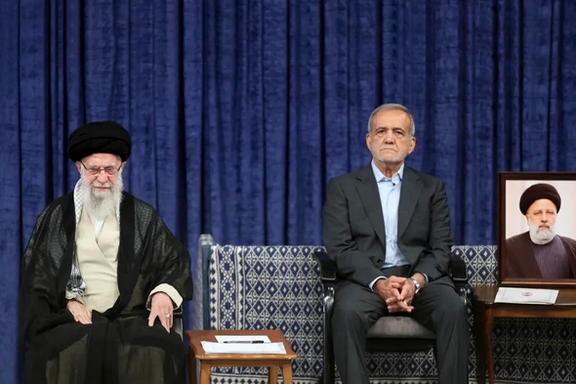
Iran’s newly elected president, Masoud Pezeshkian, has pleaded with Supreme Leader Ali Khamenei to refrain from attacking Israel, warning of its devastating impact on his presidency, according to sources familiar with the matter, who spoke on condition of anonymity.
Iran has been threatening to launch a direct missile attack against Israel to avenge the July 31 assassination of Hamas chief Ismail Haniyeh in Tehran, despite calls for restraint by its friends and foes. However, this desire for vengeance is apparently not shared by all high-ranking officials in Tehran, as there are voices expressing concern about the potential repercussions.
In a recent meeting with Khamenei, President Pezeshkian urged the 85-year-old ruler Khamenei to prevent any direct Iranian attack on Israel to avoid escalating tensions into an unwanted war, the informed sources told Iran International. This potential conflict, Pezeshkian warned, could severely disrupt his presidency and lead to significant problems.
Pezeshkian cautioned that a decision by Israel to launch harsh retaliatory attack against Iran's national infrastructure and energy resources could cripple the Iranian economy and potentially lead to the country's collapse.
Despite the grave warnings, sources said, Khamenei remained noncommittal during the session, neither supporting nor opposing Pezeshkian’s concerns.
Pezeshkian further warned about the rhetoric and actions of senior military commanders that could drag the country into war, noting that he faces relentless pressure from factions within the Islamic Revolutionary Guard Corps (IRGC) who demand a strong military response against Israel, regardless of the significant social and economic costs involved, said the sources who requested anonymity due to the sensitivity of the case.
The president asserted that his opposition to military action is rooted in national interest and not due to a lack of knowledge or experience in security and military matters, as claimed by hardliners. He stressed that initiating a war with Israel would make economic recovery and bridging the already deep divide between the Islamic Republic and its citizens impossible, severely damaging Iran's international standing, which the country desperately needs to improve.
IRGC Chief-Commander Hossein Salami on Monday said Israel will learn a lesson once it receives Iran's "severe response". Iranian authorities also told Arab countries that the country no longer cares whether its attack on Israel will trigger an all-out war in the Middle East, a report by The Wall Street Journal said.
Last week, a close aide to Pezeshkian told The Telegraph that the security lapse that resulted in Ismail Haniyeh's killing in Iran "may have been an intentional bid by the IRGC to harm the new president’s reputation. “No unharmed brain can accept that this happened by accident, especially on Pezeshkian’s first day in office,” he said. “He may have to go to war with Israel in his first few days in office and it’s all because of the IRGC.”
The president’s private plea for restraint contrasts with his public statements affirming Iran’s right to respond to Israel’s killing of Haniyeh, though he has largely avoided using inflammatory language and even told world leaders Tehran does not seek escalation.
In comments on Wednesday, Pezeshkian made it clear that he would not question the policies dictated by the Supreme Leader in public and in his meetings with foreign officials. “At the inauguration and swearing-in ceremonies, I was told to speak about the country's problems, but the fourteenth government does not permit itself to criticize Iran in front of other nations."
Pezeshkian said in a Monday meeting with top Russian security official Sergei Shoigu that "Iran is by no means seeking to expand the scope of the crisis in the region, but this regime will certainly receive a response for its crimes and arrogance." Shoigu was visiting Tehran to convey Vladimir Putin’s message of de-escalation to Iranian authorities.
The Iranian president also told his French counterpart Emmanuel Macron on Wednesday that “Iran reserves the right to give an appropriate response” to Israel’s killing of Ismail Haniyeh, without repeating the harshly worded statements of the Islamic Republic’s Supreme Leader and military authorities.
In his recent meeting with Khamenei, the newly elected president emphasized the importance of “citizens' trust in their elected representatives”, highlighting the low voter turnout in the recent presidential election as an indicator of deep-seated distrust, the sources told Iran International.
Iran’s 2024 presidential election -- held almost a year early, after President Ebrahim Raisi died in a helicopter crash in May – witnessed the lowest-ever voter turnout rate in the history of the Islamic Republic.
More than 16 million voted for Pezeshkian, according to official figures, many in the hope of preventing hardliners from heading all three branches of government, even though Pezeshkian himself announced he will be implementing the policies dictated by Ali Khamenei.
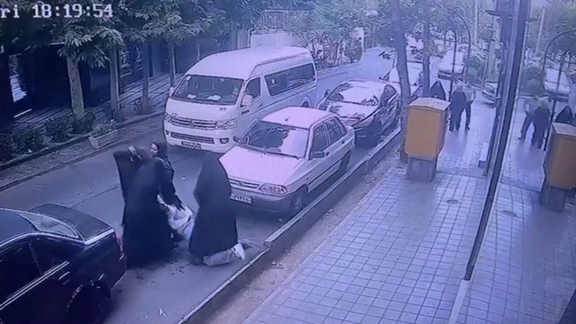
Iranian police have blamed a teenage girl for defying officers in a viral video showing her being violently arrested for not wearing a mandatory hijab.
Though they admitted their actions fell short of "standards", the social media backlash to the video was so intense that the Tehran Military Prosecutor also responded, stating that the video was meant solely for judicial purposes and should not have been released to the public.
He also said that the officers have been identified and legally summoned for their behaviour.
On Tuesday, the reformist website Ensaf News published the video which shows two unveiled teenage girls in a street in northern Tehran. A police van pulls up, and officers jump out, violently pulling the girls from the street and taking them to the van. One of the girls fervently tries to resist, but both are ultimately taken in.
The outlet noted that the video dates back to June and featured an interview with the mother of the 14-year-old girl who resisted the police. The mother described finding her daughter in a dire physical condition at the morality police detention center.
Ensaf News, quoting the mother, reported that "the officers slammed my daughter's head against a power box and, after forcibly placing her into the van, continued to beat her ... I found my daughter with a bruised face, swollen lips, a discolored neck, torn clothes, and she could barely speak".
"Her eyes were swollen shut from excessive crying," she recounted.
The report also revealed that the mother had considered filing a complaint since her daughter is under legal age. However, she was discouraged by warnings that doing so would involve the security and intelligence police and would be "costly."
The authorities also told her that two fingers of a female officer were "broken" and suggested that if she refrains from filing a complaint, they could request the officer not to press charges.
Reza Shafakhah, the lawyer representing the girls, wrote on X that he informed the judge that the officers had no legal grounds to detain his client for not adhering to the compulsory hijab.
The judge replied that it was not an arrest but an “invitation to the police station for administrative purposes.” Shafakhah posted a video stating, “The video below illustrates how the officers issue these so-called invitations.”
Mohammad Aghazadeh, a seasoned journalist in Iran, also wrote on X that the behavior only “plants the seeds of hatred that can only result in rebellion and rage.”
Journalist Aida Ghajar wrote on X that the violence against the teenager “transcends the issue of women's rights and compulsory hijab.”
She said that “it is imperative that child rights advocates and educators also engage with this matter. Nafas is, after all, a student."
Ensaf News reported that the arrest by the police was part of the Nour Plan initiative, which started in April. Iran's authorities have escalated physical efforts to enforce its strict hijab regulations in response to the plan, which has led to a surge in violent crackdowns targeting women on Iranian streets.
The enforcement of mandatory hijab was a significant topic in the election debates. While all presidential candidates concurred that violence is not an appropriate method for enforcing hijab regulations, it appears there has been no change in the conduct of Nour Plan officers towards women.
In July, the acting chief of police asserted that the same policies will persist under the new government. Ahmad Vahidi, the Interior Minister of the Islamic Republic, also defended the government's mandatory hijab policy. He reported that, over the past three years, 23,000 people have been mobilized to enforce the mandatory hijab on Iranian citizens.
This latest incident also comes nearly a month before the anniversary of Mahsa Amini’s death in police custody in 2022. Amini, 22, was arrested for allegedly wearing her hijab improperly, and her death triggered months-long protests across the country, challenging the authority of the Islamic Republic.
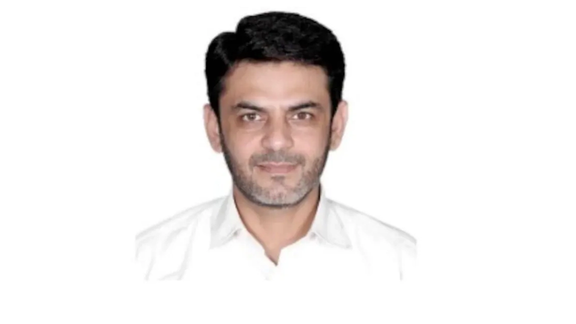
A Pakistani man with alleged ties to Iran has been charged in connection with a plot to assassinate US politicians and officials, potentially including former President Donald Trump.
Asif Merchant, 46, faces a charge of murder for hire after prosecutors say he paid $5,000 to an undercover FBI agent posing as a hitman.
Merchant, who frequently traveled to Iran, Syria, and Iraq and allegedly has a wife and children in Iran, reportedly discussed a complex plot targeting a political figure under heavy security. He was arrested in July and is currently being held in New York.
According to the Justice Department's indictment, Merchant arrived in the US from Pakistan in April following a two-week stay in Iran. Upon arrival, he contacted an individual he believed could facilitate the assassination plot. This contact, however, reported Merchant to the authorities.
The indictment describes how Merchant allegedly made a "finger gun" gesture when discussing his intentions and emphasized that the operation would not be a "one-time opportunity" and would be "ongoing", suggesting other plots may be afoot. He purportedly planned to leave the US before the targets were killed, maintaining communication through code words.
In June, the contact introduced Merchant to undercover FBI agents posing as hitmen. Merchant allegedly instructed them to steal documents from the home of a target, stage protests at political rallies, and assassinate a "political person." The targets were to be revealed in late August or early September.
While the indictment does not specify the targets, sources have indicated that Trump was one of them. The former president, who ordered the killing of Quds Force commander Qassem Soleimani in 2020, is already under increased security measures due to an Iranian plot against him, revealed in June. Iranian officials have repeatedly threatened revenge against Trump, former Secretary of State Mike Pompeo and former National Security Advisor John Bolton for Soleimani's targeted killing.
FBI Director Christopher Wray described the latest scheme as a "dangerous murder-for-hire plot straight out of the Iranian playbook." He stressed that any foreign-directed plot against a US official is a severe threat to national security and will be met with the full force of the FBI.
The plot is unrelated to a previous assassination attempt on Trump at a rally in Butler, Pennsylvania, on July 13, where a Secret Service sniper shot a 20-year-old assailant.